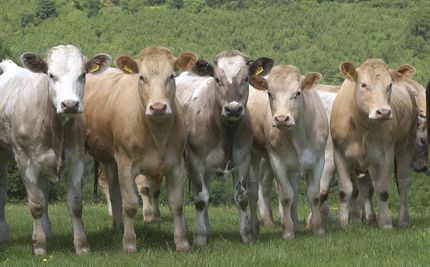Vaccine best for foot-and-mouth?

The decision to vaccinate for foot-and-mouth has come under scrutiny this week, with many in the industry believing it could be an unnecessary step.
Vaccination may be an appropriate way to prevent many diseases, but is it the best way to control foot-and-mouth?
Carlisle vet David Black, who was heavily involved in fighting the 2001 foot-and-mouth outbreak, told Farmers Weekly there were instances when vaccination may be the best control method.
“Where disease is the result of an incursion of UK borders, then it may be the best way of containing an outbreak and preventing further spread. However, as in this case – where it looks to be a localised, well-contained outbreak – there is limited, possibly no, value in vaccinating stock.”
Should vaccination be used, Mr Black suspects it will start at the outside of the surveillance zone and work towards the centre.
But independent vet consultant Tony Andrews is adamant the government should still refrain from vaccination. “Although we nowknow the strain and I am now 99.9% sure of the source, that being Pirbright, we don’t know the relationship between the two,” he says.

“If a further case was found some distance from the Pirbright site and one that has no connection in the form of movements off the infected farms, then we could possibly be looking at a case for vaccination.”
The government must be completely aware of the implications a vaccination policy would have on the industry in terms of trading, exports and whether or not cattle would have to be killed after administration of the vaccine, he added.
“Government is often accused of hiding behind science, but in this instance vaccination decisions must be made on scientific fact, not politics or public perception.
“We need to establish what DEFRA’s contingency plan of vaccinate to live means,” he adds. Although this is different from the Dutch approach of “vaccinate to kill”, which contained the disease, there is no clarity as to how long vaccinated cattle would live for. It is likely it will be “vaccinate and then kill for the food chain at some point”.
York beef producer Mike Powley, who finishes up to 30 head of Belgian Blue-sired bulls purely for the export market, says vaccination would be a bad move for the industry.
He agrees with Dr Andrews in that if the scale of the outbreak was greater, the industry would be in a position to consider vaccination on a wider scale, but as it stands it would be too detrimental for the industry. “Vaccination would simply be masking the problem.”
Under the impression that if vaccination was to go ahead, either as a ring-fenced protocol or on a wider scale, Dr Andrews believes there would be difficulty in acknowledging the difference between a vaccinated animal or infected animal and, therefore, stresses the need for clearer answers.
But speaking at a NFU press conference on Tuesday, communications director Anthony Gibson said the NFU was confident there was a validated test to distinguish between the two and that they wholeheartedly supported the need to vaccinate if required.
A farmer in the middle of the surveillance zone says he has no concern over vaccinating his stock. Local smallholder and former NFU adviser Paul Ibbott, in Farnham, said he would be happy to accept vaccination of his livestock providing it prevented further infection throughout the UK.
“However, I’m only a small unit with some fairly ordinary animals. There are a number of pedigree breeders around here and their view may well be different, particularly if it means vaccinated animals have to be slaughtered at some point in the future.”
| Vaccination concerns |
|---|
|
